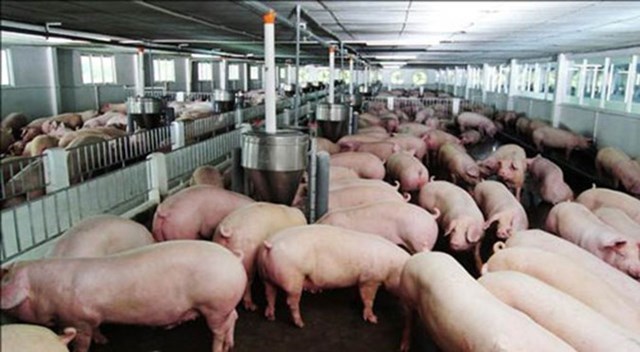|
Vietnam
suffers as China sets trade barriers on farm produce
Since Vietnam
heavily relies on China, a major import/export market, it has encountered
difficulties as China has tightened cross-border imports and set barriers to
Vietnamese farm produce.

Vietnam’s
dragon fruit price has dropped dramatically to VND200 per kilo in the south,
partly because China suddenly restricted the import. The pork price in Dong
Nai province decreased by 23 percent as China has cut imports.
Meanwhile, China remains the biggest consumer of Vietnam’s farm and forestry produce. The country has cut the import of rice, cassava and woodchips from Vietnam, while it has set technical barriers against Vietnam’s farm and seafood products. Huynh The Nang, chair of the Vietnam Food Association (VFA), said Vietnam puts high hopes on the protocol on phytosanitary requirements for Vietnam’s rice and rice bran exports because this will pave the way for Vietnam to export products through the official channel. However, China has decided to delay the implementation of the protocol until November. Meanwhile, no Vietnamese sterilization and inspection company has been recognized by China so far. Cassava exporters are now also meeting big difficulties when selling products to the Chinese market. According to Nghiem Minh Tien, deputy chair of the Vietnam Cassava Association, China has closed the border gates for the last two months.
“The
‘abnormal thing’ is that while China tries to buy more from other countries,
it has restricted the imports from Vietnam,” he noted.
According to Truong Dinh Hoe, secretary general of the Vietnam Association of Seafood Exporters and Producers (VASEP), Chinese merchants cannot buy Vietnam’s products anymore because they are requested to show quality certificates granted by Vietnamese agencies. Elaborating on this, Duong Phuong Thao, deputy head of the Ministry of Industry and Trade’s Import/Export Department, said the Chinese side, while affirming that it will facilitate the import of Vietnam’s farm and seafood products, including rice and vegetables, stated that it will tighten cross-border trade activities and strengthen activities to prevent smuggling. The Chinese side also stated it will strengthen supervision over import quality. Bui Thi Thanh Tam, general director of the Northern Food Corporation (Vinafood 1), said that the government’s support is needed to sign rice export contracts. Besides, she has proposed reducing VAT tax on export companies to help them build brands. Meanwhile, Nang of VFA hopes the Ministry of Agriculture and Rural Development (MARD) would give financial support, so that Chinese officials can visit Vietnam to examine and recognize Vietnamese companies capable of exporting to the Chinese market. In the long term, Vietnam has been advised to escape heavy reliance on one export market. Diversifying export markets is what Vietnamese businesses need to strive for.
Bao Han, VNN
|
Thứ Tư, 24 tháng 8, 2016
Đăng ký:
Đăng Nhận xét (Atom)
Không có nhận xét nào:
Đăng nhận xét